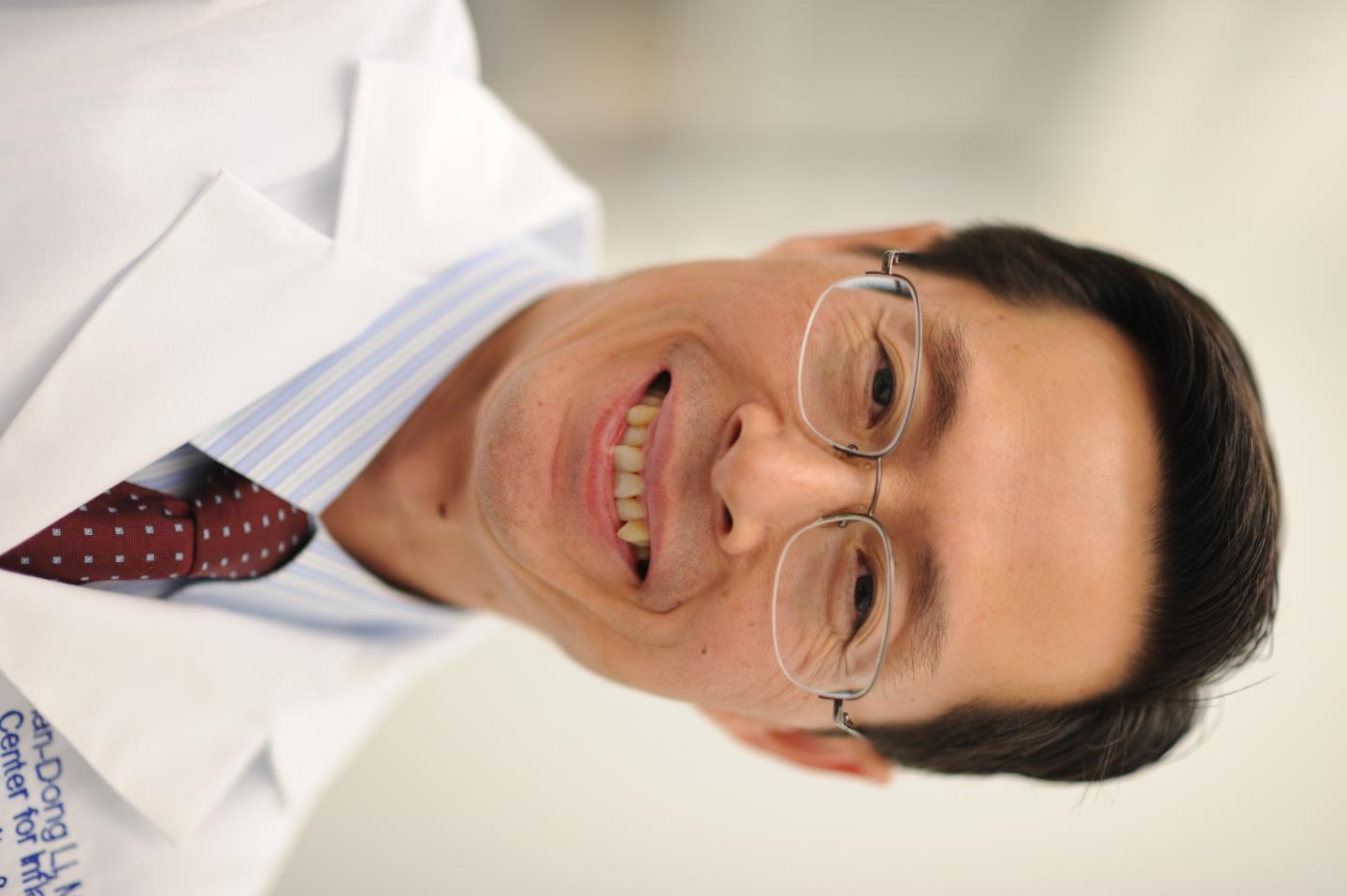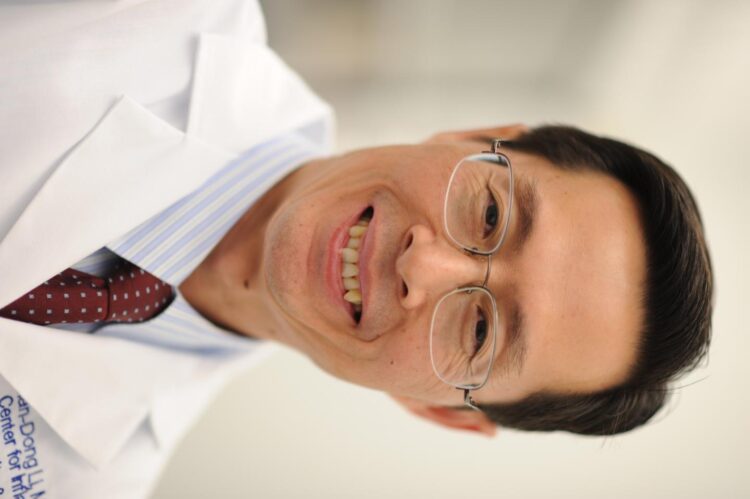
Credit: Georgia State University
ATLANTA–Dr. Jian-Dong Li, professor and director of the Institute for Biomedical Sciences at Georgia State University, has received a five-year, $2.3 million federal grant to study how overactive inflammatory response is caused in infectious diseases and to further develop novel anti-inflammatory therapeutics.
The grant from the National Institutes of Health’s National Institute on Deafness and Other Communication Disorders will be used to understand excess mucus production and inflammation in otitis media, an infection of the middle ear, the air-filled space behind the eardrum.
Otitis media, the most common childhood bacterial infection and the leading cause of conductive hearing loss in children, remains a major health problem and substantial socioeconomic burden. Current vaccines targeting Streptococcus pneumoniae, a key bacterial pathogen causing this infectious disease, have a limited impact. The inappropriate use of antibiotics also has led to increased antibiotic resistance.
“There is an urgent need for developing innovative non-antibiotic therapeutic agents for suppressing excess mucus overproduction and inflammation in otitis media,” said Li, also a Georgia Research Alliance Eminent Scholar in Inflammation and Immunity.
Mucin, a major protein component in mucus, plays a central role in mucosal defense by providing a physical barrier and trapping pathogens. However, if uncontrolled, excessive mucin production can cause conductive hearing loss in middle ear infection and mucus obstruction in lung infections.
Mucin needs to be tightly regulated, but the molecular mechanisms for tight regulation of mucin production remain largely unknown. Understanding the key regulators that increase mucin production may help to identify novel therapeutic targets and lead to the development of new therapeutic agents for suppressing mucus.
“Our goal is to elucidate the molecular mechanisms underlying otitis media pathogenesis and identify novel therapeutic targets towards developing a novel ototopical eardrop for treating inflammation and mucus overproduction and improving hearing,” Li said.
For more information about the grant, visit https:/
###
Media Contact
LaTina Emerson
[email protected]
Original Source
https:/





